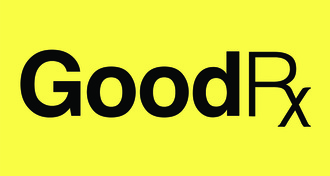
news
CNBC: How GoodRx built a $2.8 billion business by helping consumers find drug discounts

Doug Hirsch never intended to get into the health-care business. The Yahoo and Facebook veteran was thinking through ideas back in 2010 when he became fixated on the fact that a consumer couldn’t look up a medication on the internet and find out the price.
Around that time, he became friends with Trevor Bezdek, a fellow software entrepreneur. Hirsch’s and Bezdek’s moms had known each other for years in Los Angeles and had a gut feeling that their entrepreneurial sons would get along. Bezdek agreed that drug pricing was opaque, which represented a big opportunity for them to solve. They decided to start GoodRx the following year and now run it as co-CEOs. The company ranks No. 20 on the 2020 CNBC Disruptor 50 list, announced Tuesday.
GoodRx offers discount cards and coupons for consumers to take to the pharmacy, often allowing them to get a lower price. It was an early mover into the space but now has half a dozen competitors, including Singlecare and RxSaver, which are each jostling for a corner of the highly lucrative market.
Many companies in the burgeoning health-technology space cater to the so-called worried well, meaning those with spending money who are anxious about their health. But GoodRx markets its service to the 28 million Americans who are uninsured, as well as to people with high deductible plans who might still get a deal on their generic medications via its website and mobile app. Since its founding the company says it has helped Americans save more than $20 billion on prescription drug expenses.
How the company makes money
GoodRX makes part of its revenue by collecting fees from the pharmacy benefits managers, or PBMs, it works with when consumers present their GoodRx coupon at the pharmacy.
PBMs are middlemen that fit into the notoriously complicated drug supply chain, where they negotiate prices with manufacturers on behalf of insurers.
In a very simple example, imagine a patient pays $20 for a drug. The PBM might collect $6 from the pharmacy, leaving the pharmacy with $14 (the pharmacy also incurs dispensing costs). The PBM then splits some of that fee with GoodRx.
Independent pharmacies will sometimes make money on the transaction, but not always. For that reason, some of them have started their own rival discount programs or work with a different contractor that is offering to reduce the fees. But GoodRx’s Hirsch claims that overall, the service is “financially positive” for pharmacies.
“A lot of times you can end up losing money (as an independent pharmacy) when a customer uses a discount card,” said Steve Moore, a pharmacist with Condo Pharmacy in New York. “But it depends on the drug.”